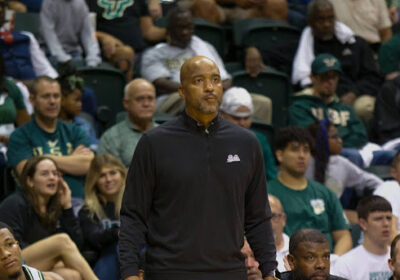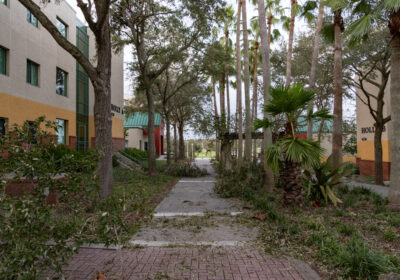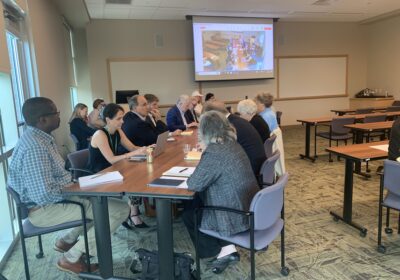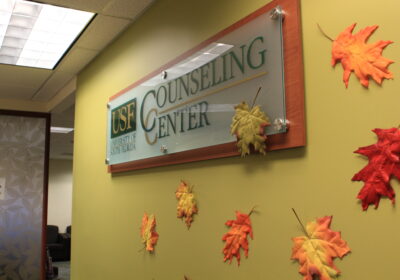USF Housing to replace JP air conditioning chillers following shutdown

Residents at Juniper-Poplar Hall spent three days struggling to manage rising temperatures caused by a building-wide air conditioning outage this past weekend.
Following the implementation of a preventative maintenance project over the summer which required the closure of JP, Housing ordered three replacement chillers — or the units that supply cool air to a building — and pumps months prior to the air conditioning outage.
The expected date of installation, which was initially set prior to students returning to campus for the fall semester, was greatly impacted by supply chain shortages experienced because of the pandemic, according to Assistant Vice President of Housing and Residential Education Ana Hernandez.
However, parts didn’t arrive until after Housing reopened the dorm building. As a result, she said the high functioning of current chillers and pumps motivated them to postpone the replacement project.
Full reinstallation of the new chillers and pumps will now be conducted over winter break, according to Hernandez. Given that the air conditioning system has returned to full function following the outage, she said Housing would prefer to perform the installation when students are not in the building, as it will require air to be shut off for multiple days.
From Sept. 3-6, outdoor temperatures reached an average of 92 degrees in Tampa, according to Accuweather. For sophomore political science major Joseph Ambrosino, attempting to navigate communication with USF Housing on the issue proved more frustrating than the heat.
“Obviously, it was really uncomfortable to sit in the dorm and study so I had to stay out basically the whole day either at the library or at other friends’ dorms. Eating at the dining hall was miserable, my friends and I would sweat in our seats,” he said.
“But the worst part was the fact that for the first couple days, there was zero communication from USF Housing about the problem. Everyone in the building knew there was an issue but we did not hear from them for a couple of very humid days. I don’t want to say it makes me look at the school as a whole differently, but I must say that I am disappointed.”
Intense humidity in the building also impaired students’ ability to complete everyday tasks such as studying and sleeping in their dorm rooms, according to Ambrosino. Without a source of cooling, he said many students would return to their residences only to take a shower or grab necessary items for their classes.
Since receiving work order calls from students, Housing has tried to be responsive in correcting individual air conditioning cases, according to Hernandez. While she understands students’ frustrations with a lack of immediate communication, she said a lack of response resulted from a failure in the alarm system, which typically alerts technicians when air conditioning shuts off.
“Unfortunately, we had one of the chillers go out because of a control panel and then we were waiting for the replacement part. It’s usually fine to have two chillers supplying air … but then we had some of our pumps go out, which are the sort of what provides the pressure for the air to get into the building,” she said.
“When we went to investigate, we resolved those issues but didn’t realize that it was a more comprehensive issue that we were dealing with over the course of the weekend.”
Although Housing was quick to make necessary changes after recognizing what had happened, such as putting fans in each dorm room to circulate air and servicing the remaining chillers, Hernandez recognizes there was room for improvement in the way they responded.
“I think that the one thing that I want to tell students is that our goal in housing and residential education is to deliver an experience that allows students to be successful. I think that that did not happen this past weekend,” she said. “We’re examining where we had equipment failures, communication failures and protocol failures and we will do better next time.”






